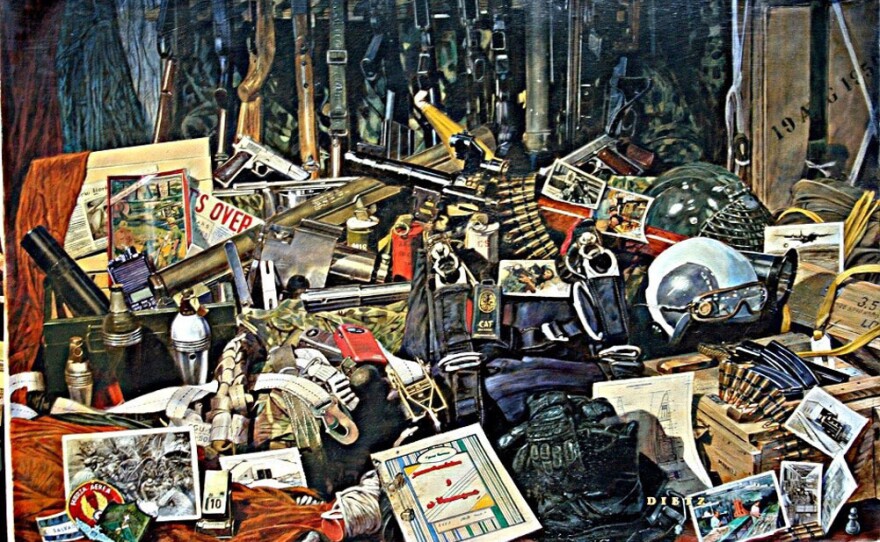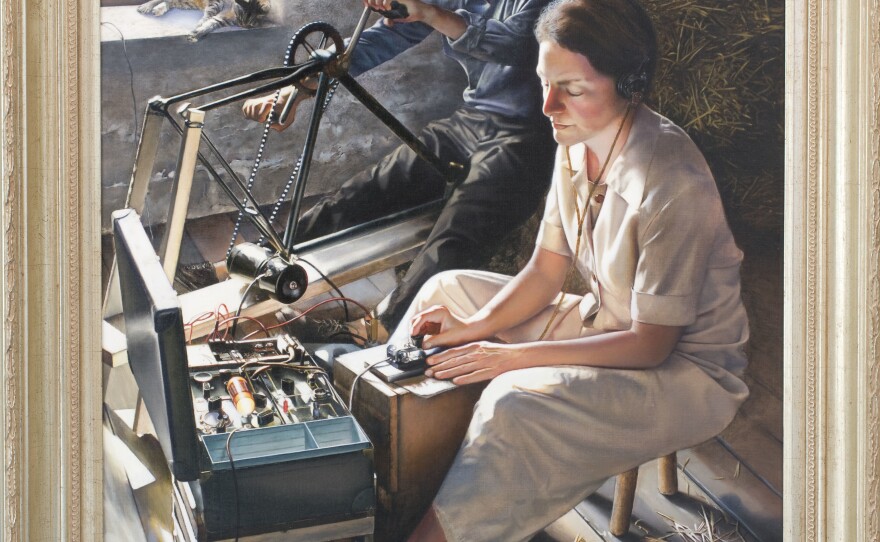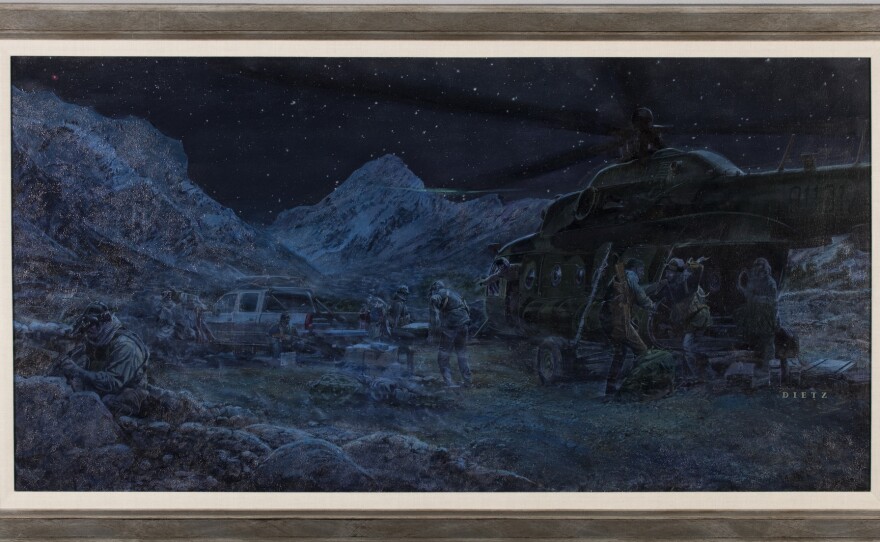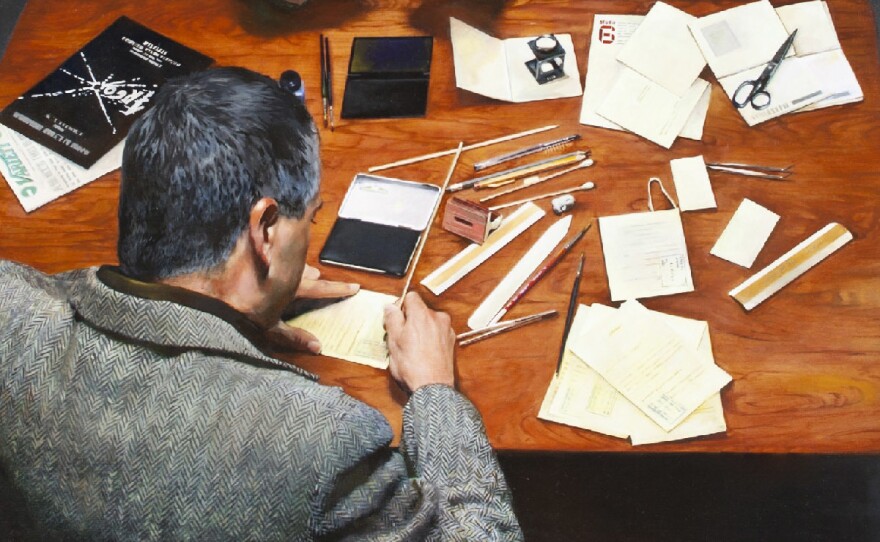


A new oil painting has just arrived in what may be the world's most clandestine art gallery — the fine arts collection at the headquarters of the Central Intelligence Agency.
This commissioned work isn't your typical still life; the tableau is a busy clutter of gear — photos, blueprints, weapons and ammunition.
CIA museum director Toni Hiley says this painting — the 21st in the collection — is purposely complex. A Contingency for Every Action shows artifacts from major covert actions going back to World War II. "It's what we call an Easter egg painting," Hiley says. She calls it an "Easter egg" because nestled within are little hints from missions that are still classified.
Unless you're a CIA officer, you'll probably never get to see the painting in person. Which might make you wonder: Why does the CIA have an art gallery at all?
The CIA's mission "is to go where others cannot go," Hiley tells NPR's Mary Louise Kelly. The museum's collection (which you can browse here) is full of equipment, clothing and correspondence that go all the way back to the CIA's predecessor, the OSS. But the museum can't always rely on artifacts to tell the full story. "We don't always have artifacts to act as the portal to get us to that particular part of our history," Hiley explains.
Instead, the museum commissions historical paintings that help ensure that new CIA employees have an opportunity to learn about the past. "Our workforce is a young workforce," Hiley explains. "Fifty-two percent of our officers have joined since 9/11, and it's absolutely critical that they understand where we've come from as an agency so they can lead us to where we will go."
Some of the paintings recall dark times in CIA history. One work pays tribute to four B26 pilots who lost their lives in the 1961 Bay of Pigs Invasion. Hiley says it's possible to find pride even in failed operations. "We're proud of the four pilots we lost, we're proud that we did what the president asked us to do," she says. " ... Part of our pride is acknowledging our mistakes and learning from them."
Hiley hasn't commissioned a painting on Iraq yet, but she says "we've done a strategic plan on the collection, and we're very busy trying to fill in gaps."
Want to see more? You can browse through more CIA art and artifacts here.
Copyright 2016 NPR. To see more, visit http://www.npr.org/.






